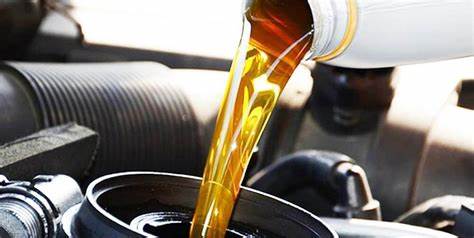Table of Contents
Benefits of Using Drilling Lubricants for Electrochemical Drilling
Drilling lubricants play a crucial role in the process of electrochemical drilling, providing numerous benefits that contribute to the overall efficiency and effectiveness of the operation. By reducing friction, heat, and wear on the drilling tool, lubricants help to extend its lifespan and ensure precise hole drilling. In this article, we will explore the various benefits of using drilling lubricants for electrochemical drilling.
One of the primary advantages of using drilling lubricants is their ability to reduce friction between the drilling tool and the workpiece. Friction can cause excessive heat to build up, leading to premature wear and damage to the tool. By applying a lubricant to the drilling area, the friction is minimized, allowing the tool to move smoothly through the workpiece without generating excessive heat. This not only helps to protect the tool from wear but also ensures that the hole is drilled with precision and accuracy.
In addition to reducing friction, drilling lubricants also help to dissipate heat generated during the drilling process. Heat can be detrimental to the drilling tool, causing it to become dull and less effective over time. By using a lubricant, the heat is absorbed and dispersed, preventing it from accumulating in one area and causing damage to the tool. This not only extends the lifespan of the tool but also ensures that the hole is drilled cleanly and accurately.

Furthermore, drilling lubricants help to improve the overall surface finish of the drilled hole. Without lubrication, the drilling tool can leave behind rough edges and burrs, which can affect the quality of the hole and the overall appearance of the workpiece. By using a lubricant, the tool is able to move smoothly through the workpiece, creating a clean and precise hole with a smooth surface finish. This is particularly important in industries where the appearance of the finished product is crucial, such as in the aerospace or automotive industries.
Another benefit of using drilling lubricants is their ability to improve the overall efficiency of the drilling process. By reducing friction and heat, lubricants help to speed up the drilling operation, allowing for faster and more accurate hole drilling. This not only saves time but also reduces the risk of errors and rework, leading to a more efficient and cost-effective drilling process.
In conclusion, drilling lubricants play a vital role in the process of electrochemical drilling, providing numerous benefits that contribute to the overall efficiency and effectiveness of the operation. By reducing friction, heat, and wear on the drilling tool, lubricants help to extend its lifespan and ensure precise hole drilling. Additionally, lubricants help to improve the surface finish of the drilled hole and enhance the overall efficiency of the drilling process. Overall, the use of drilling lubricants is essential for achieving high-quality results in electrochemical drilling applications.
Tips for Choosing the Right Drilling Lubricant for Precise Holes
Drilling lubricants play a crucial role in the electrochemical drilling process, especially when it comes to creating precise holes. These lubricants help reduce friction and heat during the drilling process, which in turn helps to maintain the integrity of the workpiece and ensure accurate hole placement. Choosing the right drilling lubricant is essential for achieving the desired results, and there are several factors to consider when making this decision.
One of the most important factors to consider when choosing a drilling lubricant is the type of material being drilled. Different materials require different types of lubricants, so it is important to select a lubricant that is compatible with the material being drilled. For example, water-based lubricants are often used for drilling non-ferrous metals, while oil-based lubricants are more suitable for drilling ferrous metals. It is also important to consider the thickness and viscosity of the lubricant, as this can affect the drilling process and the quality of the holes produced.
Another important factor to consider when choosing a drilling lubricant is the type of drilling equipment being used. Different types of drills and Drilling Machines may require different types of lubricants, so it is important to select a lubricant that is compatible with the specific equipment being used. Additionally, some drilling lubricants are specifically designed for use with certain types of drills or drilling machines, so it is important to choose a lubricant that is recommended by the manufacturer of the equipment.
In addition to considering the type of material and equipment being used, it is also important to consider the environmental impact of the drilling lubricant. Some drilling lubricants contain harmful Chemicals that can be damaging to the Environment, so it is important to choose a lubricant that is environmentally friendly. There are many eco-friendly drilling lubricants available on the market today, so it is possible to find a lubricant that meets both your drilling needs and your environmental concerns.
When choosing a drilling lubricant for precise hole drilling, it is also important to consider the cost of the lubricant. While it may be tempting to choose a cheaper lubricant to save money, it is important to remember that the quality of the lubricant can have a significant impact on the drilling process and the quality of the holes produced. It is worth investing in a high-quality drilling lubricant that is specifically designed for precise hole drilling, as this can help to ensure that the drilling process is efficient and effective.
| Logo | Product name |
| www.mogenoils.com | Engine oil |
In conclusion, choosing the right drilling lubricant is essential for achieving precise holes in the electrochemical drilling process. By considering factors such as the type of material being drilled, the type of drilling equipment being used, the environmental impact of the lubricant, and the cost of the lubricant, it is possible to select a lubricant that meets your drilling needs and helps to ensure accurate and high-quality hole placement. Investing in a high-quality drilling lubricant is a worthwhile investment that can help to improve the efficiency and effectiveness of the drilling process.

